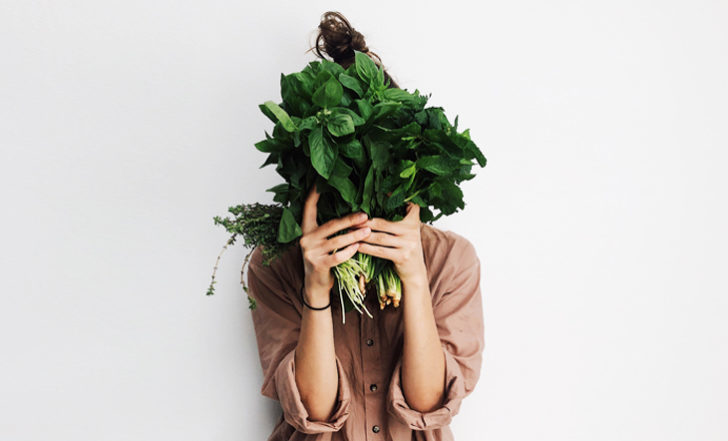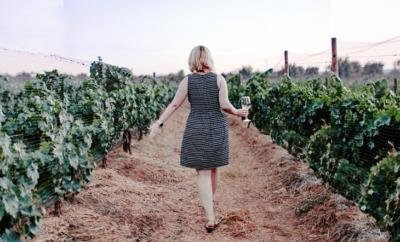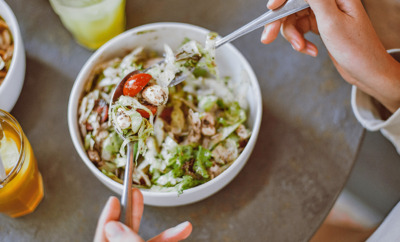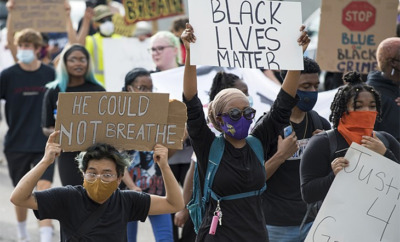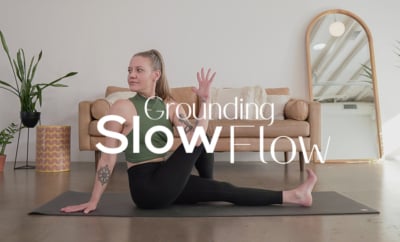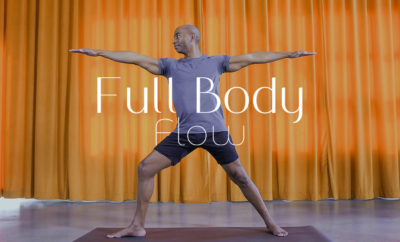This Is the Intersection of Veganism and Racism (Yes, They Are Related)

For many white people, the unlearning and learning about the implications of systemic racism is only just beginning.
But newsflash (or perhaps not, if you’ve known,) – systemic racism is a poison that affects even our food system and the plant-based eating movement.
If you thought veganism only had to do with picking a bean burger instead of beef, or that it’s an area somehow untouched by systemic racism, think again.
The truth is, veganism and systemic racism intersect in real and devastating ways.
I find it extremely important to acknowledge that I am a privileged white woman writing this article. Because of my skin color, I have not myself experienced any of the examples of racism we’re about to get into.
The truth is, veganism and systemic racism intersect in real and devastating ways.
To continue your anti-racist education, (talking to you here, fellow white people!) I urge you to listen and learn from people of color directly.
Educate Yourself With These Anti-Racism Resources to Build the Foundation for Lasting Change
Here Are 5 Ways That Systemic Racism and Veganism Intersect:
This is by no means an extensive list, as it’d take a whole book to cover the intersectionality of racism and veganism! Many books on this topic exist by the way – including Protest Kitchen: Fight Injustice, Save the Planet, and Fuel Your Resistance One Meal at a Time – which is a must-read!
Consider this an overview of some of the must-know examples of the many ways that systemic racism and veganism coincide.
Because again, if you’re thinking that veganism and food choices in general only pertain to what we put on our plate, it’s way more complicated than that.
Our food pyramid recommendations – meant to promote health – are written in a way that make most non-white people sick. Let that sink in.
Here are a few instances of how eating more plants is not as simple, or outside the realm of social justice, as some of us might think.
1. Veganism Is White-Washed
This is an instance of how systemic racism and veganism are related, and it’s easy to see with your own eyes. In fact, you often do. Google “vegan” or check out any vegan-centric Instagram page, magazine, or website.
How often do you see people of color represented, or literally anyone other than the standard thin, white woman into green smoothies and salads that the vegan industry chooses to center? By using white people as the face of the vegan world, the Black and other non-white vegan communities are largely erased from mainstream media.
There are so many prominent vegan chefs, foodies, creators, authors, and influencers you need to know! Take a good hard look at your social media and media consumption in general, and ask yourself if you’re only seeing white faces, and what you can do to change that.
These 10 Black-Owned Beauty Brands Are Natural, Vegan and Cruelty-Free
2. The Vegan Culinary Scene Often Does Not Acknowledge Its Origins
Think “vegan” and good chance you’re envisioning the cliché heavy hitters like kale, quinoa, sweet potatoes, and tofu, which make up lots of the “standard” vegan diet. But how did these foods end up in our cuisine?
There’s a stark lack of education or acknowledgement of the history and culinary roots of many of these foods. In fact, a lot of dishes typically thought of as “vegan” have roots in African, Caribbean, or Asian cuisines, to name a few.
What we see marketed to white people as trendy “vegan” foods are often foods with rich histories and heritages – which are getting glossed over or totally ignored.
You Don’t Have to Go Vegan to Be On a Plant Based Diet – Here’s Why
3. The Standard American Diet Ignores Most Other Cuisines
Veganism is often (okay, always) pegged as a fringe, niche movement – the opposite of the “normal” diet. But why? And who said what’s “normal?”
In fact, while many Americans do eat a meat and animal-heavy diet, we have European colonialism to thank for that. Prior to Europeans normalizing a diet rich in animal foods, many cuisines were (and still are!) traditionally heavily plant-based.
What’s more, our nutrition guidelines in the U.S. fundamentally overlook the bodies and health of non-white people. Between 50-80% of people of color are lactose intolerant.
For people from south India, those of Hispanic origin, and Ashkenazi Jews, the rates of lactose intolerance are similar if not even higher. This number is even higher in those of Asian or Indian descent. Because dairy isn’t traditionally eaten in many cultures, many people lack the needed enzymes to break down lactose.
Our food pyramid recommendations – meant to promote health – are literally written in a way that make most non-white people sick. Let that sink in.
4. Not Everyone Has the Same Access to Vegan Food
Veganism is getting easier and easier these days – for some.
You’ve likely heard the term food desert? Many prefer to the use the term food apartheid, which is preferred as a more accurate description of the regions with unequal food access. (The term “food desert” can make this problem seem far away and impersonal, or somehow accidental.)
In reality, there are on average four times more supermarkets in white neighborhoods than predominantly Black ones.
Due to the food apartheid, the quality and selection is often worse, and prices – especially for healthy options – is often higher, which only furthers the injustice and inaccessibility, deepening the intersection between veganism and systemic racism.
When a white vegan influencer fails to recognize the systemic and devastating impacts of the food apartheid, they’re missing a huge piece of the conversation. For anyone passionate about a plant-based lifestyle, step one is recognizing the uneven playing field that exists.
5. Veganism Can’t Keep Ignoring Human Suffering
The dogmatic, militant stance you hear from many vegans is often tone-deaf to the suffering of human beings. The vegan movement is rooted in compassion (or it’s supposed to be,) but compassion must extend to our fellow human beings – not only animals.
Insisting that people must be 100% vegan (failing to take into account their resources and access), isn’t just ineffective from an activist standpoint, it’s the opposite of compassionate or trauma- or privilege-informed.
People of color are faced with numerous injustices and daily traumas. Adding a pushy, dogmatic pressure to overhaul eating habits is problematic to say the least.
Veganism Can Do So Much Better!
As Carol Adams and Virginia Messina state in their book Protest Kitchen, people often think of veganism as elitist and totally detached from social justice at large.
But really, eating more plant-based (especially when it acknowledges and corrects its blind spots, inherent systemic racism, and inaccessibility), is a huge step in a positive direction toward more respect and wellbeing for all.
But to get there, veganism has some work to do.


This Month's Letter
From the Editor
Monthly motivation and food for
thought from our founder.

